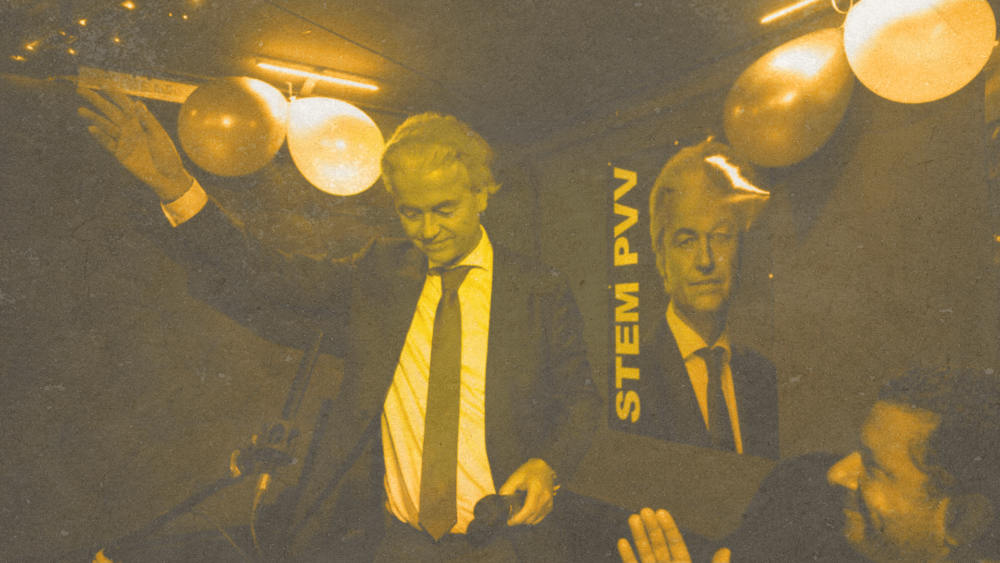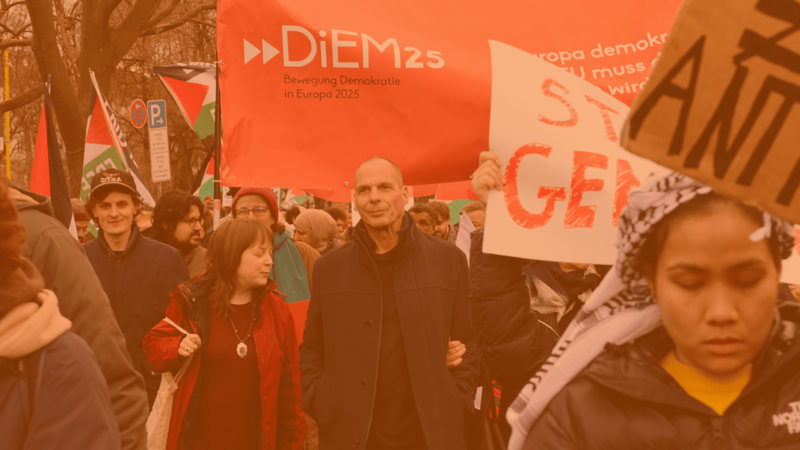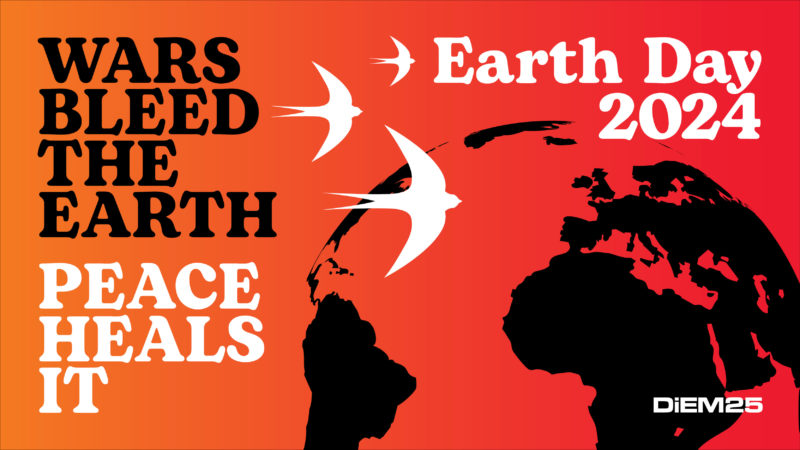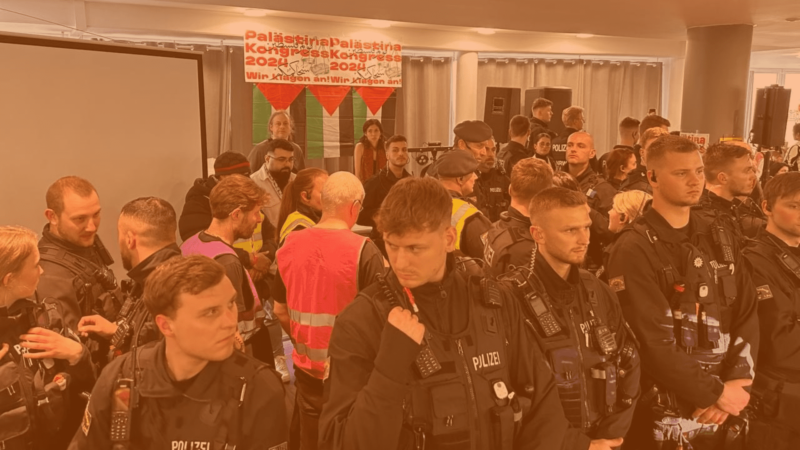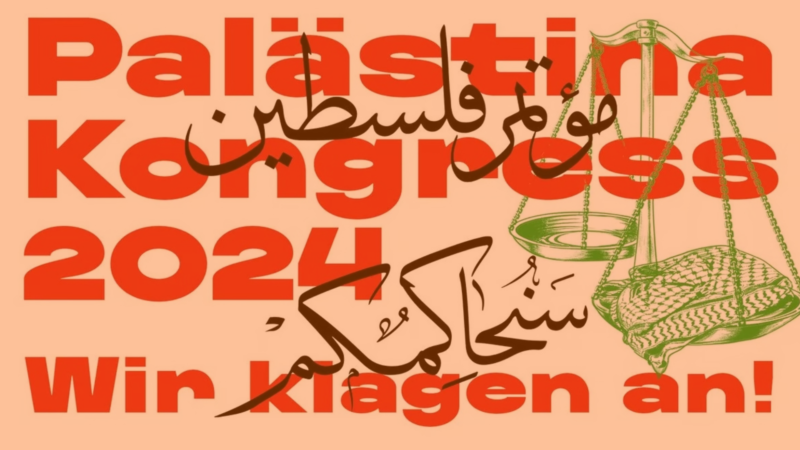Rather than just vilifying individual politicians which only increases polarisation, we should focus on building democracy and giving people real power
Mark Rutte’s fourth cabinet fell this summer over its immigration policy, which falls in line with a trusted Dutch tradition of bringing cabinets down or letting them fall before completing a full term. The previous cabinet to serve a full term was Rutte’s second (2012-2017) while the one before that was Wim Kok’s between 1994-1998.
Given the reason for the previous cabinet’s demise, and aided by a strong media narrative focus, it shouldn’t be a surprise that the winner of the recent elections is the party with the strictest immigration policy. All the major parties, even the new left-merge between Labour and the Greens, have read the writing on the wall and advocated for strict immigration policy. The new NSC (New Social Contract) party even proposed a cap on immigrants, with a specific number allowed per year. None of them, however, went as far as Geert Wilders’ PVV demanding a total halt on the acceptance of asylum seekers.
And it paid off. PVV won the elections with a comfortable margin of 11 seats, winning 37 in the 150-seat Parliament. Labour-Greens, led by the former EU Commissary Frans Timmermans, came second, followed closely by Rutte’s former party VVD, and with a small difference the new NSC. The former coalition partner D66 was left with nine seats, way behind the four leading parties.
Wilders’ long road to the top
After the exodus of many experienced politicians following Rutte’s last cabinet breakdown in the summer, Wilders is the longest serving representative in the current parliament of the Netherlands. Wilders was a member of VVD until 2004 and founded his PVV party in 2006. After the September 11, 2001 attacks, the murder of the right-wing politician Pim Fortuyn in 2002 and that of filmmaker Theo van Gogh in 2004, his Islamophobia has appealed to the far-right segment of the Dutch population.
Despite his popularity and even electoral success, Wilders’ hateful rhetoric has isolated him from power, as all the major parties have been careful to keep their distance from him. This changed after these elections for two reasons. First, of course, the sheer magnitude of his win makes it impossible for others to go around him in the upcoming formation negotiations. Secondly, the concessions Wilders made – or at least implied – in his first comments after the results came out, have largely been interpreted as readiness to compromise on some of his radical (read: unconstitutional) standpoints in order to be able to form a coalition.
Challenging formation negotiations ahead
At the time of writing this, Wilders is faced with many uncertainties regarding the kind of coalition he’s able to form for his new cabinet. Dilan Yeşilgöz-Zegerius, the new leader of VVD, has said that due to the significant loss (17 seats) of her party, they would not be available for a coalition. Pieter Omtzigt, the founder and leader of NSC, already during the campaign said he wouldn’t be joining a government with the PVV. As the Labour-Greens is not a viable partner for Wilders, he’s got some hard work ahead of him in the formation negotiations. The first nominated negotiator, Gom van Strien, had to resign due to fraud allegations. Slightly surprisingly the new negotiator is a former Labour Party MP Ronald Plasterk.
Politicians being politicians, it is of course not unimaginable at all that either Yeşilgöz-Zegerius or Omtzigt, or both, will be tempted by power and join forces with Wilders. And that would mean very tough times for any progressive politics in this country. Not that it has been easy until now, either. Even before the 13 years of Rutte’s VVD cabinet’s, Netherlands was mostly centre-right. That is to say, the Dutch are well versed in the neoliberal playbook with austerity for the poor and the middle class, blaming immigrants for all the problems, not acknowledging the existence of structural racism among other things.
The future of progressive politics in the Netherlands
As progressive forces, we are now faced with the challenge of responding to this development. The challenges seem huge, but not insurmountable. What the populists nearly always do is suggest quick and easy solutions to issues, large and small. They claim, for example, that too many immigrants coming into the country are causing the housing crisis, while there are more than a hundred thousand empty buildings in the Netherlands, not to mention that the first Rutte cabinet actively sold the social housing stock to foreign investors. When there are economic troubles – and there often are in capitalism – the solution is always to curb public spending, i.e. cut from the benefits and services of the poorest and most vulnerable, instead of taking the resources from where they are; from the wealthy.
Awareness of the empty neoliberal and populist promises have slowly been rising in the Netherlands. Most notably, Extinction Rebellion – but also many other NGO’s – have done a good job in keeping the climate crisis on the agenda, and lately have been proposing some alternatives to the over 40 billion euros of taxpayer money annually lost to support the fossil fuel industry. The current genocide taking place in Gaza has also mobilised huge numbers of people who realise that the mainstream narrative of Israel’s ‘right to defend itself’ cannot legitimise the killing of thousands of Palestinian children – regardless of what happened on October 7, of which the whole truth is still to be discovered.
The polarisation of society, to which Wilders has been greatly contributing, is the direct result of misinterpretation of statistics and figures and has become weaponised information. Unfortunately, the most vulnerable among us are the victims who have already been stripped of their dignity and basic human rights. Right-wing politics, and indeed the machinations of Wilders, have been successful in removing the humanity of the ‘other’ and therefore making it easier to create the narrative that the foreigner, the Muslim, the one that looks different or practices different beliefs, is the enemy.
Cognitive dissonance of Europeans and the state of democracy
It is almost comical that nations, such as the Netherlands, that engaged in marauding and pillaging other lands, occupying and annexing them, robbing them of their resources, now want to win elections on the strength of anti-refugee and anti-migrant sentiments. The irony is even more pertinent considering that Wilders’ mother is Indonesian and Yeşilgöz-Zegerius is the daughter of a Kurdish human rights activist and the director of VON (Refugee Organisations Netherlands). Both have personally experienced the benefits of free movement of people, but yet advocate the toughest measures to restrict it.
Some of our leftist comrades have reacted to the election results by launching protests and campaigns that target Wilders specifically, with his name and face on the posters. This has the risk of alienating the 2.5 million people that voted for PVV. And while it is difficult to separate Wilders and PVV policies as it is a one member party, we should rather focus on the ball rather than the player. We must be vigilant in keeping politicians accountable for their words and deeds, but protesting against election results – however appalling they may be – does not fit DiEM25’s project of advocation for democracy. Vilifying individual (democratically elected) politicians only increases polarisation and does not help us fight for a better society for all. Instead, we should focus on building democracy and giving people real democratic power. The simplistic policies of Wilders and other populists leave plenty of space for constructive criticism from a progressive standpoint. DiEM25 has plenty of policies and positions to arm ourselves with for the good fight without resorting to personal attacks on democratically elected politicians and further alienating the people who voted for them. Unelected ones, however, deserve to be singled out.
Focus on humanity
If we desire a shift back to compassion and decency in society, we must focus our attention, and that of the voting public, back to humanity. It is our duty as progressives to bring humanity back into politics, and indeed inspire policy and law that is focused on the upliftment and equality of all people within and without our national borders.
As part of the progressive left, we have a moral duty to not only remind this nation of its past, and how it has built its wealth, but also to hold the state accountable for its actions, both during and after the active colonialism. We have a moral and ethical obligation to educate the masses and claim back public spaces with interpretations of various statistics that doesn’t treat people as numbers. In 2014, Wilders did exactly that when he called for “less Moroccans” based on the statistics that showed youth with Moroccan roots were 5-6 percent more likely to commit a crime than other Dutch youth; a schoolbook case of structural racism that got Wilders sued for the second time for a hate crime.
But all is not lost: we have within us the will and ability to recoil from the staggering blow of the election results. While the outcome is bound to embolden the part of society prone to bigotry and aggression towards the vulnerable, we should brace ourselves and be ready to come to the support of those the more powerful and privileged attempt to exploit and violate. We have much work ahead of us, but through strong relationship building and maintaining the true progressive narrative, we have the power to reshape the future away from the one that has appeared before us now.
Do you want to be informed of DiEM25's actions? Sign up here






